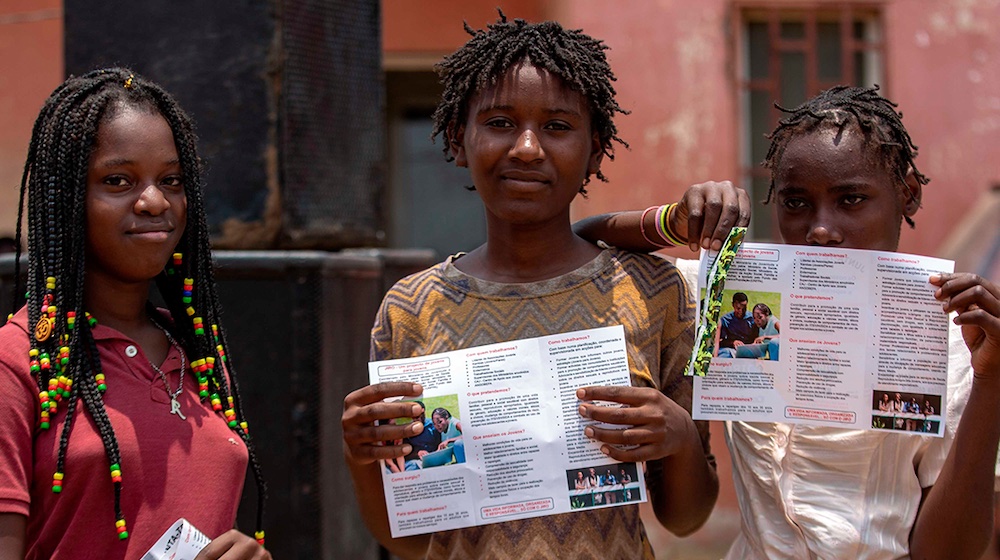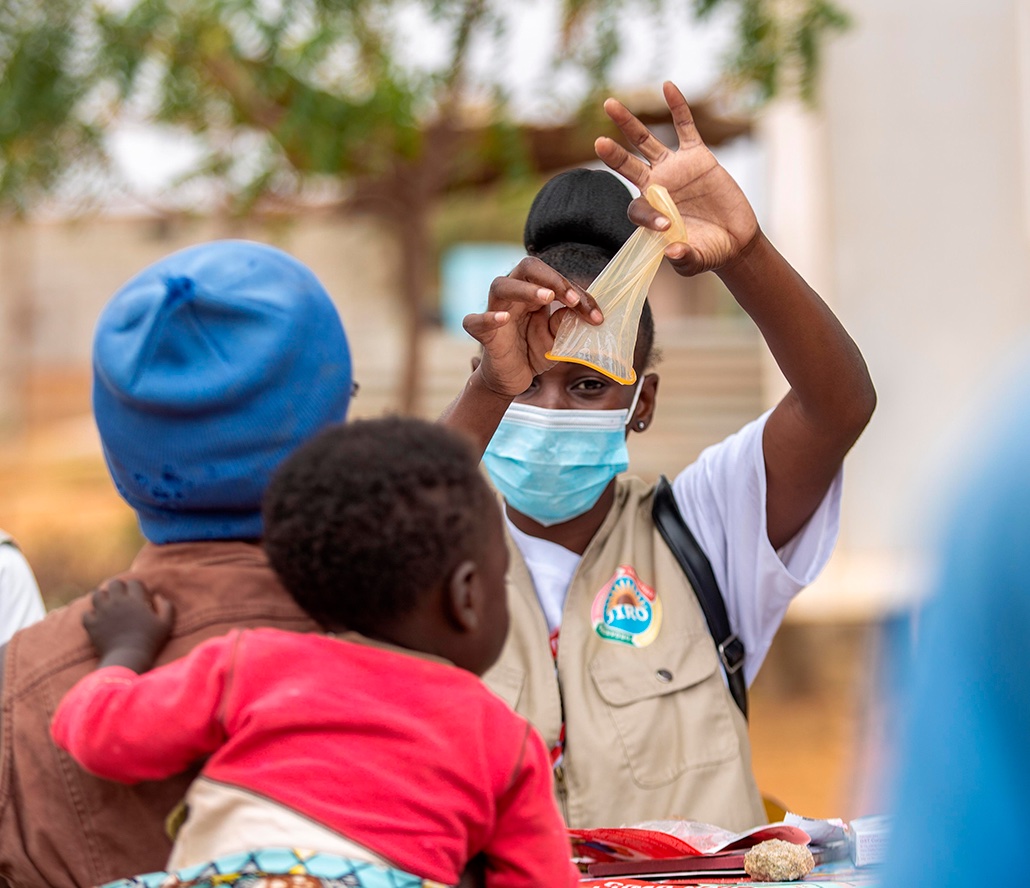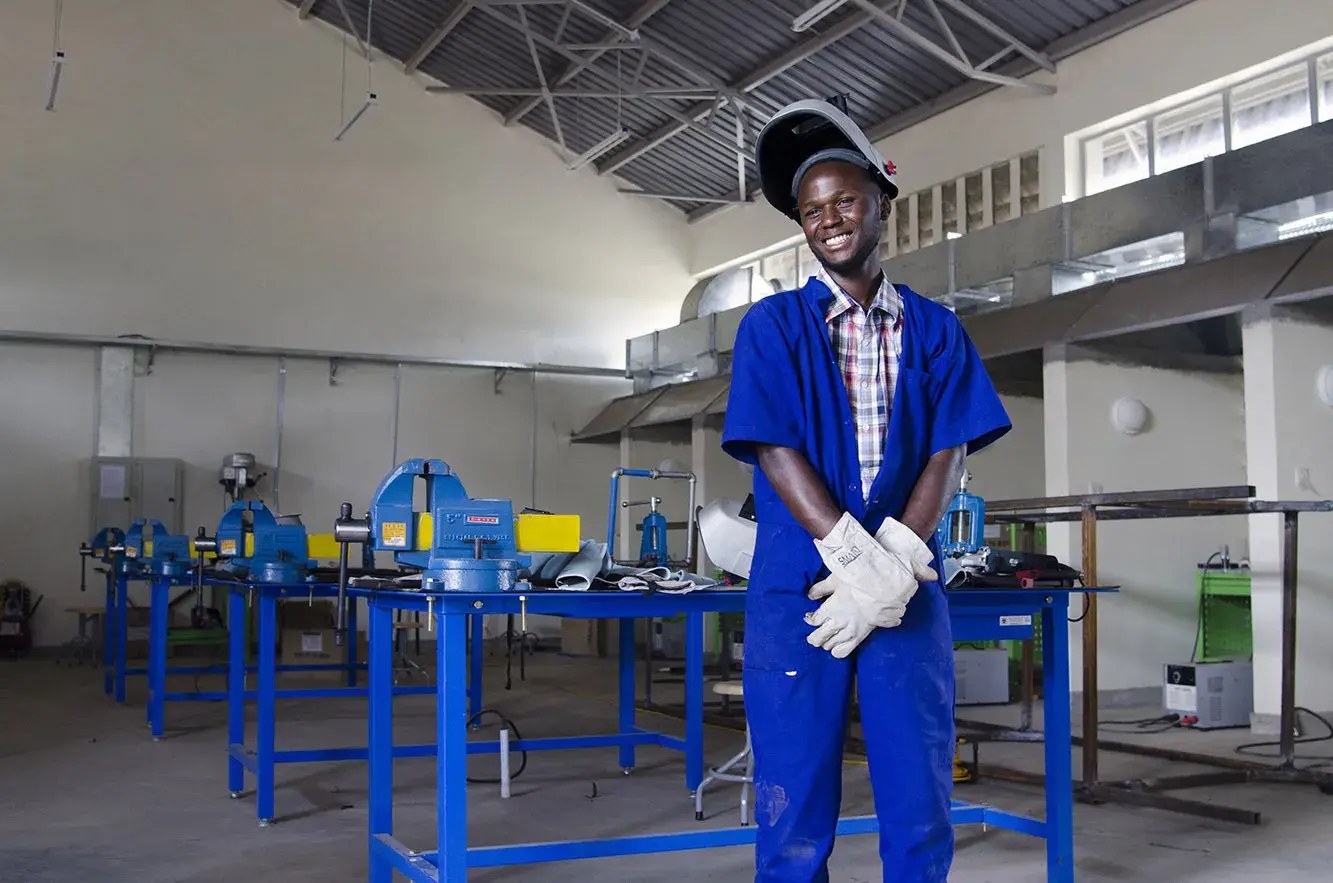VIANA, Luanda, Angola—“The problem that the girls go through is they are discriminated against. They are judged and then for some reason, they feel they have to help [out at] the house, so they get involved with certain people,” says Daniela Isabel Raimundo Ngunza, 26, a volunteer activist for JIRO (Responsible and Organized Informed Youth) in Viana.
She joined JIRO after she was approached by activists and since then, she helps other young people learn about their sexual and reproductive health and rights in her community.
My daily life as an activist is being in the field and talking to young people so that they can change their behaviour.
“My daily life as an activist is being in the field and talking to young people so that they can change their behaviour,” she says.
From an early age, she wanted to train as a doctor to take care of people yet that path was riddled with difficulties. She started studying to be a nurse and when she was unable to complete her training, became an entrepreneur instead. She continues to care for and support other women in her community, imparting knowledge about topics related to youth and women in particular.
In an increasingly global world, digital technology is bringing communities closer together and making information available to everyone. For Ms. Ngunza, the digital world has given her a broader vision, one in which she feels empowered through the information available on online platforms.

“One of the great benefits that digital technology brought to my life was knowledge. Today, I know a lot that I had no idea of before.”
Early sexual debut and teen pregnancy
Her work in empowering young people in sexual and reproductive health is crucial. In Luanda, 40 per cent of youth between 12 and 19 years old have used alcohol, and the average age of first sexual intercourse is 14 years old. Forty-one per cent of girls of the same age have already had a pregnancy, according to a 2016 study by the Ministry of Youth and Sports in partnership with UNFPA.

JIRO is a UNFPA-supported programme run by the Ministry of Youth and Sports together with the Ministry of Social Action, Family and Promotion of Women; the Ministry of Education; and the Ministry of Health. Launched in 1997, the programme aims to promote positive behaviour in youth and adolescents through educating them on sexual and reproductive health, including family planning, gender equality, sexually transmitted infections and HIV.
On International Day of the Girl Child in October, the JIRO team met with girls from the municipality of Cacuaco, in Mayombe, to provide a range of services including community jangos (meetings), community discussions with women on behaviour change, counselling and HIV testing, music, dance and awareness raising. Ms. Ngunza was one of the activists who participated.
In partnership with UNFPA, the Ministry of Youth and Sports is investing in mobile apps and technology such as SMS-Jovem/U-Report, to reach young people and adolescents with life-saving information, to enable them to realize their sexual and reproductive health and rights.
It is a vision that Ms. Ngunza shares. She longs for a world in which women are well informed and empowered to achieve their goals, a vision she intends to keep working towards.




